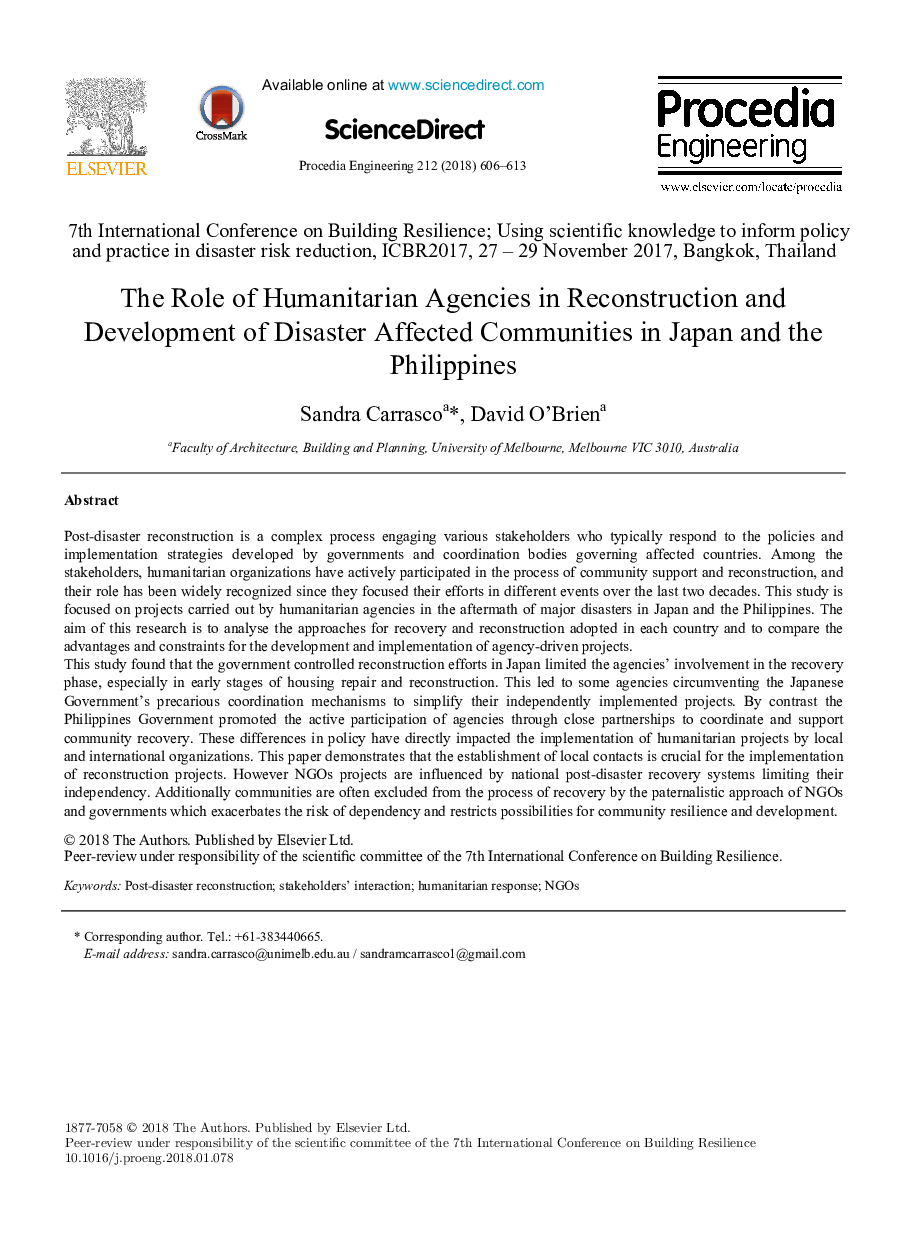| Article ID | Journal | Published Year | Pages | File Type |
|---|---|---|---|---|
| 7226081 | Procedia Engineering | 2018 | 8 Pages |
Abstract
This study found that the government controlled reconstruction efforts in Japan limited the agencies' involvement in the recovery phase, especially in early stages of housing repair and reconstruction. This led to some agencies circumventing the Japanese Government's precarious coordination mechanisms to simplify their independently implemented projects. By contrast the Philippines Government promoted the active participation of agencies through close partnerships to coordinate and support community recovery. These differences in policy have directly impacted the implementation of humanitarian projects by local and international organizations. This paper demonstrates that the establishment of local contacts is crucial for the implementation of reconstruction projects. However NGOs projects are influenced by national post-disaster recovery systems limiting their independency. Additionally communities are often excluded from the process of recovery by the paternalistic approach of NGOs and governments which exacerbates the risk of dependency and restricts possibilities for community resilience and development.
Related Topics
Physical Sciences and Engineering
Engineering
Engineering (General)
Authors
Sandra Carrasco, David O'Brien,
